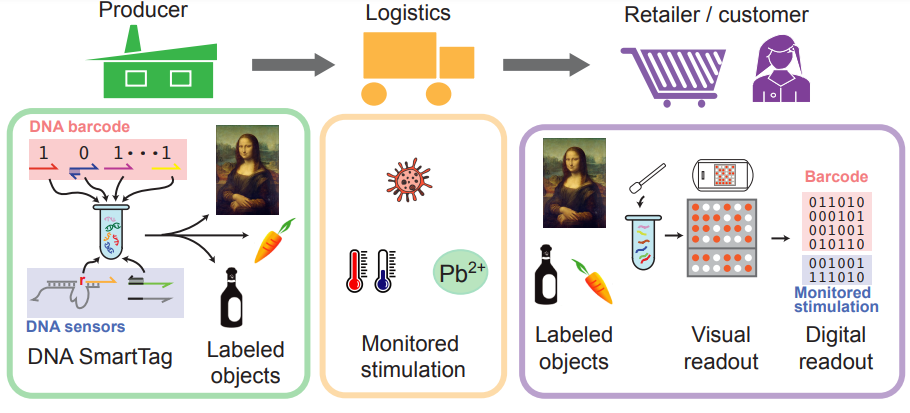DNA Tags
Due to its nanoscale size and predictable Watson-Crick base pairing, DNA-based molecular tagging offers an attractive alternative to physical object labeling that is useful when conventional tags, such as QR codes and RFID tags, are unsuitable. Conventional tags are poorly integrated with physical objects and relatively easy to tamper with. Despite significant progress in DNA nanotechnology, no current DNA tagging method is field deployable, forgery protected, and capable of sensing environmental changes.
We therefore propose to build a hybrid electronic/molecular DNA smart tagging system that features (1) a unique DNA encoding scheme for forgery protection, and (2) DNA sensors for recording environmental changes. We will demonstrate a holistic end-to-end DNA tagging system that can encode, read and decode DNA tags back into digital barcodes. Our system leverages DNA computing and computer vision techniques that enable convenient DNA reading on fields. It will effectively mitigate costly supply chain problems, ranging from food waste and food recall to counterfeit manufactured goods.

Fig. 1. Overview of DNA SmartTag’s use in the supply chain. We use DNA barcodes and DNA sensors to label objects. DNA sensors record specific environmental stimulations as they occur in the supply chain. Retailers and/or customers read DNA tags using a visual readout and smartphone.
People




